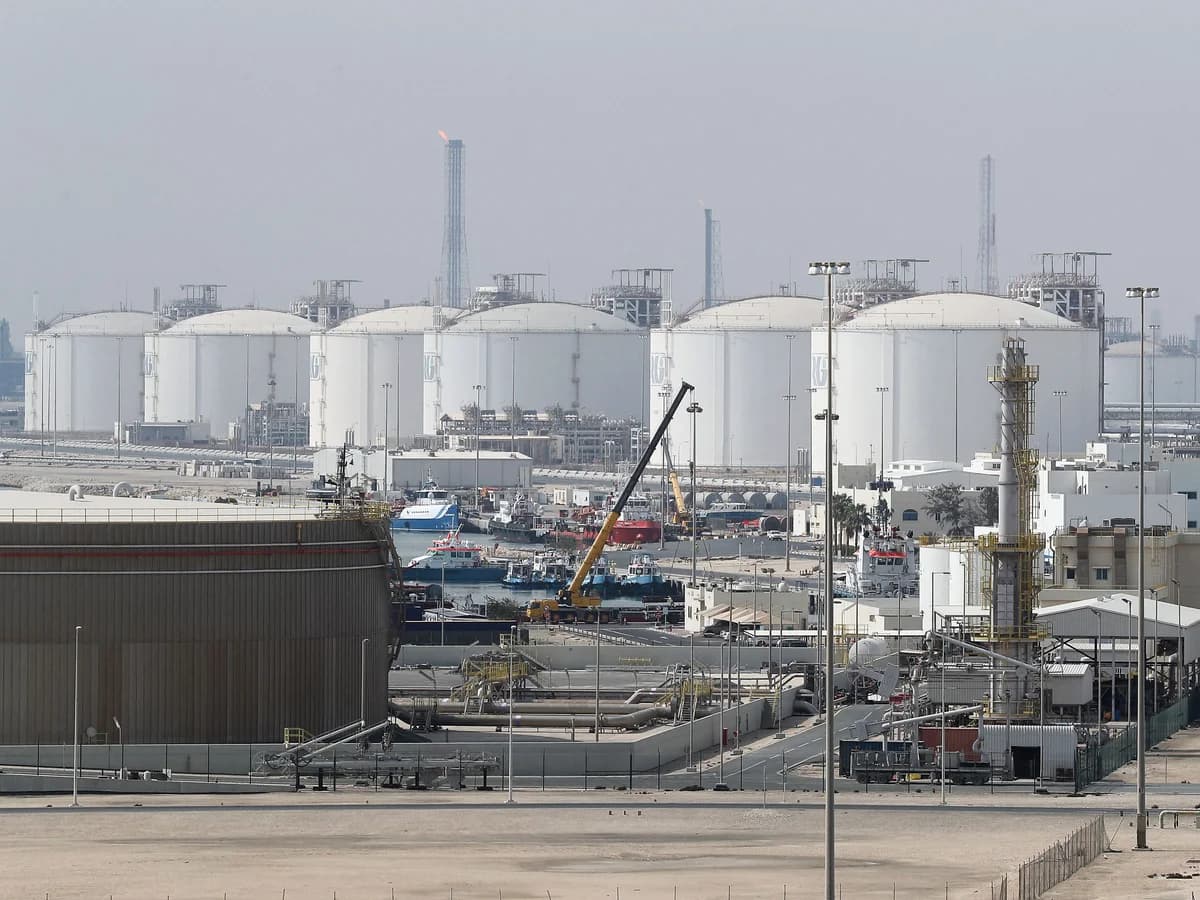We're loading the full news article for you. This includes the article content, images, author information, and related articles.
A joint letter from the United States and Qatar warns the European Union that its new corporate sustainability directive threatens liquefied natural gas (LNG) imports, potentially impacting Europe's energy security and economic stability.

The United States and Qatar, two of the world's leading exporters of liquefied natural gas (LNG), have jointly urged the European Union to either repeal or significantly scale back its new Corporate Sustainability Due Diligence Directive (CSDDD). In a letter sent on Wednesday, October 22, 2025, to EU heads of state, the two nations warned that the directive poses an "existential threat" to European economies by hindering gas imports. This comes as the Trump administration simultaneously approved a contentious gas export hub along the U.S. Gulf of Mexico coast.
The directive, currently under debate by EU legislators, mandates that gas exporters to the 27-member bloc demonstrate adherence to human rights protections and a commitment to reducing planet-warming emissions, or face substantial fines. The U.S. and Qatar argue that the implementation of these rules could jeopardise existing and future investments, employment, and compliance with recent trade agreements.
The joint letter underscores a growing tension between the EU's ambitious climate agenda and the energy security concerns of its major gas suppliers. Since Russia's full-scale invasion of Ukraine, the EU has sought to reduce its reliance on Russian energy, turning increasingly to the U.S. and Qatar for LNG supplies. In 2024, the U.S. supplied approximately 45% of the EU's LNG imports, while Qatar provided between 12% and 14%.
The Trump administration has consistently advocated for increased fossil fuel use and has been critical of climate action. U.S. Energy Secretary Chris Wright has publicly labelled net-zero policies a "colossal train wreck" and the Paris climate agreement "silly." During a visit to Europe in July, former President Trump reportedly urged the UK to increase oil drilling and halt wind energy projects.
The Corporate Sustainability Due Diligence Directive (CSDDD) was adopted in 2024 and officially entered into force on July 25, 2024. It requires large companies operating within the EU, including non-EU entities with significant operations in the bloc, to identify and address adverse human rights and environmental impacts across their operations and value chains. Member States are expected to transpose the directive into national law by July 26, 2027, with a staggered application for companies beginning in 2028.
While the European Parliament's legal committee has supported some watering down of the CSDDD, Qatar's Energy Minister Saad al-Kaabi has stated that these adjustments do not go far enough to address their concerns.
The primary stakeholders in this debate are the U.S. and Qatari governments and their energy companies, the European Union institutions, European energy firms, and environmental and human rights organisations. The U.S. and Qatar argue that the CSDDD's provisions, particularly those concerning extraterritorial application, climate change mitigation transition plans, penalties, and civil liability, could disrupt trade and investments.
Environmental and human rights groups, conversely, are pushing the EU to uphold strong due diligence standards. They highlight recent research indicating that LNG, when its full life-cycle emissions are considered, can have a greenhouse gas footprint 33% larger than coal over a 20-year period.
The dispute over the CSDDD highlights a significant risk to Europe's energy security, particularly as the continent prepares for winter with potentially tighter gas supplies. If the directive is fully implemented without amendments, it could make LNG imports legally complex and financially riskier for suppliers, potentially leading to higher energy prices for European households and industries.
Furthermore, the U.S. and Qatar suggest that the directive could undermine the EU's industrial competitiveness and hinder compliance with existing trade agreements. The push for increased LNG imports also raises concerns among environmental advocates about the EU's commitment to its climate targets, given research on LNG's significant greenhouse gas footprint.
The ultimate impact of the CSDDD on LNG imports remains uncertain, as further negotiations are expected between EU institutions before its final adoption and full implementation. The extent to which the EU will amend the directive to address the concerns of its energy suppliers is a key unknown. Additionally, the long-term viability of the EU's $750 billion energy deal with the U.S. by 2028 has been questioned by analysts.
Observers will be closely watching the ongoing debates within the EU legislative bodies regarding the CSDDD and any potential amendments. The response from the European Commission to the joint letter from the U.S. and Qatar will also be critical. Further, the trajectory of global LNG prices and the EU's energy demand in the coming winter months will influence the urgency of these discussions.
Keep the conversation in one place—threads here stay linked to the story and in the forums.
Sign in to start a discussion
Start a conversation about this story and keep it linked here.
Other hot threads
E-sports and Gaming Community in Kenya
Active 9 months ago
The Role of Technology in Modern Agriculture (AgriTech)
Active 9 months ago
Popular Recreational Activities Across Counties
Active 9 months ago
Investing in Youth Sports Development Programs
Active 9 months ago